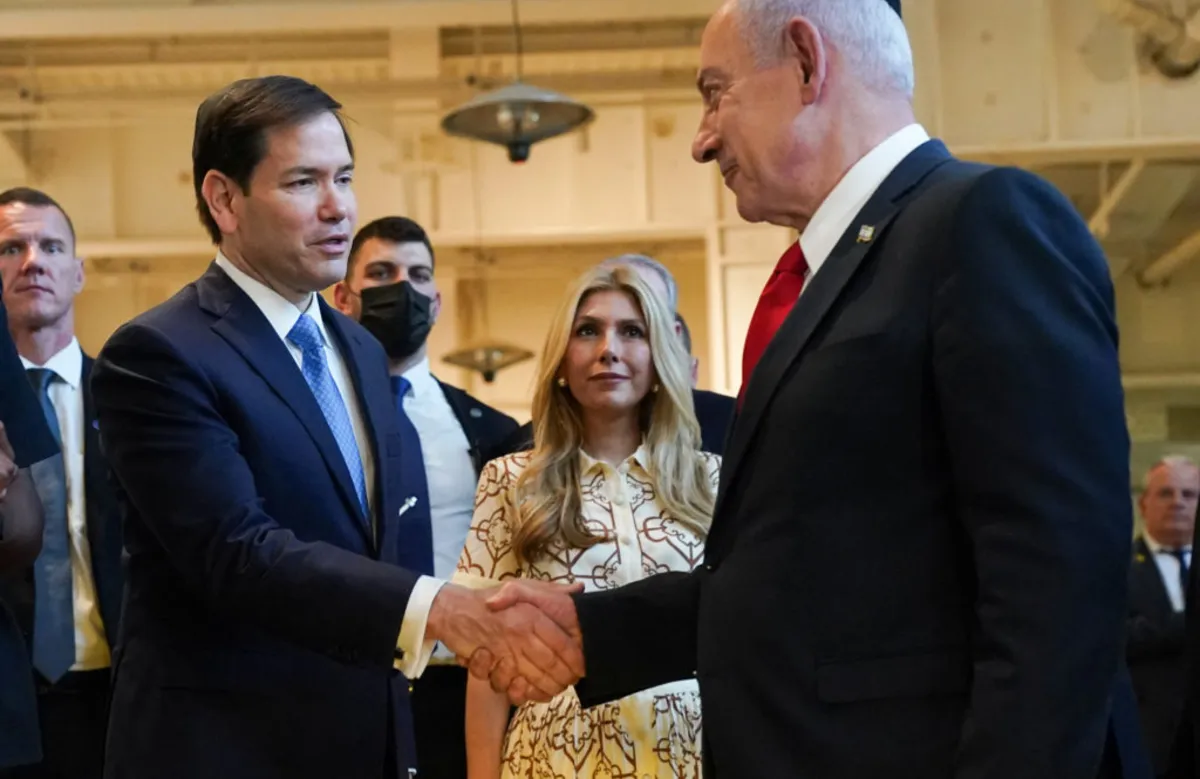
On Sunday, U.S. Secretary of State Marco Rubio arrived in Israel as the Israeli military escalated its attacks on northern Gaza. These operations resulted in the destruction of several high-rise buildings and the deaths of at least 13 Palestinians. Rubio's visit comes at a critical time, as he aims to engage with Israeli officials about the future of Gaza following Israel's recent strike on Hamas leaders in Qatar, which disrupted ongoing efforts to reach a ceasefire.
Rubio’s two-day visit serves as a demonstration of support for Israel, which has found itself increasingly isolated on the international stage. This visit coincides with an upcoming United Nations debate expected to address the commitment to the creation of a Palestinian state—a proposal that Israeli Prime Minister Benjamin Netanyahu vehemently opposes.
Despite tensions stemming from President Donald Trump's discontent regarding the Israeli operation in Doha—an attack that he claims the U.S. was not informed about—Rubio's trip proceeded as planned. On Sunday, Rubio, Netanyahu, and their spouses, along with U.S. Ambassador to Israel Mike Huckabee, visited the Western Wall and nearby tunnels, symbolizing the strong ties between Israel and the United States. Netanyahu remarked, “I think Rubio’s visit here is a testament to the durability and strength of the Israeli-American alliance,” highlighting the unwavering bond between the two nations.
As Rubio met with Israeli leaders, the situation in Gaza deteriorated further. Reports indicate that at least 13 Palestinians were killed and many more injured due to multiple Israeli airstrikes throughout the region. Local hospitals reported that these strikes targeted various locations, including a vehicle near Shifa hospital, a roundabout in Gaza City, and a tent in Deir al-Balah, which resulted in the deaths of six family members.
The Israeli military has not issued immediate comments regarding these strikes. As part of its ongoing military operations in Gaza City, Israeli forces demolished several high-rise buildings, issuing evacuation warnings to residents just hours before the attacks. Without providing evidence, Israeli officials have accused Hamas of utilizing civilian areas to establish militant operations.
Residents expressed outrage over the destruction, with one local resident, Abed Ismail, stating, “This is part of the genocidal measures the (Israeli) occupation is carrying out in Gaza City.” This sentiment reflects deep-seated fears and frustrations among the population, particularly in the wake of historical events referred to as the Nakba, or catastrophe, marking the displacement of Palestinians during the 1948 war.
In a separate but equally alarming development, two Palestinian adults reportedly succumbed to malnutrition-related causes in Gaza, as the health ministry reported a total of 277 deaths attributed to malnutrition since late June. The ongoing conflict has exacerbated the humanitarian crisis, with aid workers noting that the assistance entering Gaza is grossly inadequate to meet the population’s needs.
The international community is closely monitoring the situation. As foreign ministers from Arab and Islamic nations convene in Doha to discuss a united response to the Israeli attacks, U.S. diplomatic efforts continue to balance relations between Israel and other key Middle Eastern allies. The fallout from the Israeli operation highlights the complexity of the ongoing conflict and the challenges faced in negotiating peace.
The war in Gaza ignited when Hamas militants launched an attack in southern Israel on October 7, 2023, leading to significant casualties and the abduction of 251 individuals. Currently, 48 hostages remain in Gaza, with 20 believed to be alive. The toll of the conflict has been staggering, with Gaza's Health Ministry reporting at least 64,871 Palestinian deaths, a number that includes a significant proportion of women and children, and approximately 90% of the Gaza population displaced from their homes.
The ongoing violence raises urgent questions about the future of both the Israeli and Palestinian peoples, as the international community grapples with the complexities of the conflict and the dire humanitarian situation in Gaza.